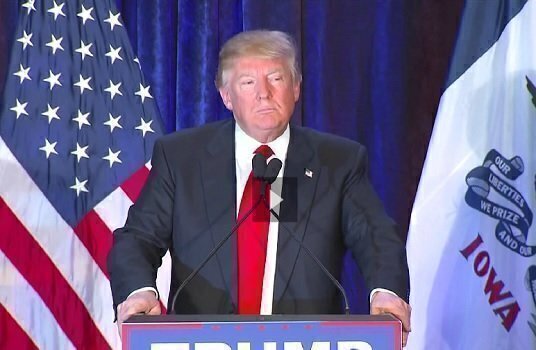 President Trump moved on Wednesday to keep his restrictions on immigration in operation, if the Supreme Court now allows government officials to start enforcing those limits. In a new presidential order, issued to clear up an ambiguity that had surfaced in court cases, the President extended the planned expiration dates for the restrictions.
President Trump moved on Wednesday to keep his restrictions on immigration in operation, if the Supreme Court now allows government officials to start enforcing those limits. In a new presidential order, issued to clear up an ambiguity that had surfaced in court cases, the President extended the planned expiration dates for the restrictions.
As a result, the prospect that the two main provisions of the law might lapse before the Justices could rule on them will not now occur. The periods set for the two clauses to be in effect, if allowed by the court, will not start to run until and unless enforcement is permitted.
The Trump legal team advised the Supreme Court on Wednesday of the new presidential order in two new legal filings involving both the question of enforcement now, and the question of granting review. The filings came in the pending case from Maryland, which involves only one of the two main provisions.
In the Maryland case, a federal judge has issued a nationwide order temporarily blocking the government from starting a 90-day suspension of entry into the U.S. of foreign nationals from six Mideast nations that have predominantly Muslim populations.
The other main provision, not at issue in the Maryland case but also at issue in a separate pending case at the court from Hawaii, would suspend for 120 days any entry into this country of any refugee from anywhere in the world. A federal judge in Honolulu has barred enforcement of both.
The two judges’ orders against enforcement have now been upheld by two federal appeals courts, and the government is now appealing to the Supreme Court in both cases. All of the legal briefs in the two cases are to be completed by next Wednesday (June 21), giving the court the hurried option even of acting before the Justices leave town on their summer recess.
In the presidential executive order that has existed since it was issued on March 6, both the 90-day and 120-day suspensions were to start running on March 16, which the order said was the “effective date.” Some of the challengers to the restrictions had told the Supreme Court that this meant that, by its own terms, the 90-day provision would expire today (June 14) and that the 120-day suspension would expire on July 14.
Under that scenario, the 90-day suspension would be over before the Justices even decided what to do about it, and the 120-day suspension might also expire if the court did not allow it to go into effect now and did not complete its review until the next term, starting in October. Thus, the executive order’s validity could wind up a dead issue (legally, “moot”).
That is the situation dealt with by the President’s new “memorandum” issued Wednesday. The document said that lower court orders blocking enforcement had “delayed or tolled” – that is, interrupted – the running of the suspension periods. They would be set in motion, it added, if the lower court orders were lifted – exactly the action that the Trump Administration is now asking the Justices to take in both the Maryland and Hawaii cases.
The new White House document said that the new starting dates for the suspensions was being accomplished as an amendment to the March 6 order.
“Now,” the government lawyers said in one of the new filings, “there is no question that this case presents a live dispute and that a stay would provide meaningful relief.” (A “stay” is a court order blocking something from happening. The two judges’ orders stayed enforcement of the presidential restrictions.)
Between now and next Wednesday, the further legal briefs due before the Supreme Court will be coming in. The two cases could then go before the Justices at a private conference on Thursday, June 22. As of now, that is the Justices’ final scheduled conference, but others could be set up if the court has not finished its work for the term.
It has been expected that this term would end by the end of this month or early in July. Whether the fight over the immigration order will delay that is unknown at this point.
Legendary journalist Lyle Denniston is Constitution Daily’s Supreme Court correspondent. Denniston has written for us as a contributor since June 2011 and has covered the Supreme Court since 1958. His work also appears on lyldenlawnews.com, where this story first appeared.
Recent Stories on Constitution Daily
Democratic lawmakers sue President over business ties
Timing gets tighter on immigration review
Government offers timetable on immigration cases







